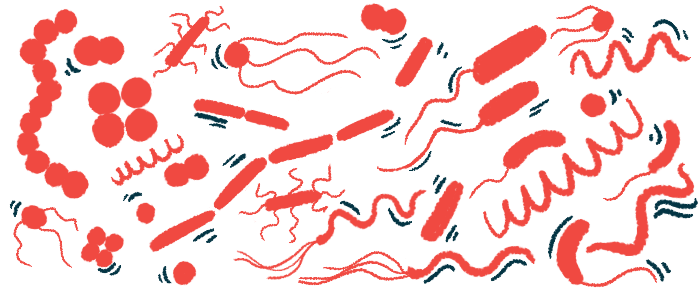Complex genetic diversity found among P. aeruginosa strains
Recurring infections of the bacteria often a different strain than first diagnosed

A high degree of genetic diversity was found among strains of Pseudomonas aeruginosa bacteria initially infecting the lungs of people with cystic fibrosis (CF), a study reports.
Over a seven-year follow-up, the majority of CF patients experience a recurrence of the bacteria, with one-third of those being infected with a different bacterial strain.
These findings highlight the “striking complexity” of P. aeruginosa infections, the researchers noted, and may account for persistent infection with unrelated strains being wrongly classified as chronic infection by the same strain.
“This major finding supports the need to perform molecular typing of [P. aeruginosa] strains more largely at first and subsequent isolations,” wrote researchers in the study, “Highly diverse dynamics of Pseudomonas aeruginosa colonization from initial detection in cystic fibrosis patients: A 7-year longitudinal genetic diversity study,” published in the journal Infection, Genetics and Evolution.
Infection with P. aeruginosa is a major complication in people with CF, an inherited disorder marked by the buildup of thick mucus in various organs, including the lungs, pancreas, liver, and intestines. More than 60% of adults with CF are estimated to be infected with this bacteria.
Researchers at the University of Montpellier, in France, set out to understand the genetic diversity of P. aeruginosa strains at first infection (colonization) and the changes that occur over time, including those from recurrent infections.
Initial P. aeruginosa infections in 44 CF patients
Over a seven-year follow-up period, an initial P. aeruginosa infection occurred in 44 CF patients, representing 18% of all patients at their CF center. Among them, five were adults (11.3%).
Sputum samples were subjected to multiLocus sequence typing (MLST), a genetic analysis technique that characterizes bacterial species using the DNA sequences of housekeeping genes, which are those used for essential cellular function. MLST assigns a sequence type to each strain, which can identify unique P. aeruginosa strains.
A total of 265 P. aeruginosa strains were isolated from 134 samples collected from these patients, which included 65 strains from first infections and 200 strains from recurrent infections.
First infections involved P. aeruginosa strains with a high degree of genetic diversity, in which 41 different DNA sequence types were identified.
Among them, four were unknown, 22 were not reported previously in CF patients, and six corresponded to common, widespread bacterial types infecting about one-third of patients (36%). Twenty-four patients (54.5%) harbored strains with a unique genetic signature not seen in any other strain in the study.
The bacterial infection was successfully treated in 18 patients (41%) the month after first detection and up to the end of the study.
Infection recurred in the remaining 26 patients (59%), of whom nine (35%) were infected with strains that had different genetic signatures, representing a reinfection event instead of a relapse from the same strain. Nearly one-third (30.8%) had recurrent infections for less than one year, while for 18 (69.2%) patients recurrence happened from one to six years.
Among the 18 patients with persistent infection, half (50%) were colonized by two common, widespread strains with a high prevalence in water and clinical samples at the CF clinic, the researchers noted.
Despite these findings, overall, no specific strains were associated with transient, recurrent, or persistent infections. In fact, half of the persistent colonizations involved P. aeruginosa stains with different genetic signatures.
“All observations underlined the striking complexity of [P. aeruginosa] colonization in CF patients, which may account for persistent colonization being wrongly regarded as chronic colonization,” the team concluded.
“[P. aeruginosa] remains a major pathogen and [P. aeruginosa] colonization has still to be monitored to evaluate modifications in both [P. aeruginosa] epidemiology and colonization dynamics in CF patients under treatment,” they added.








